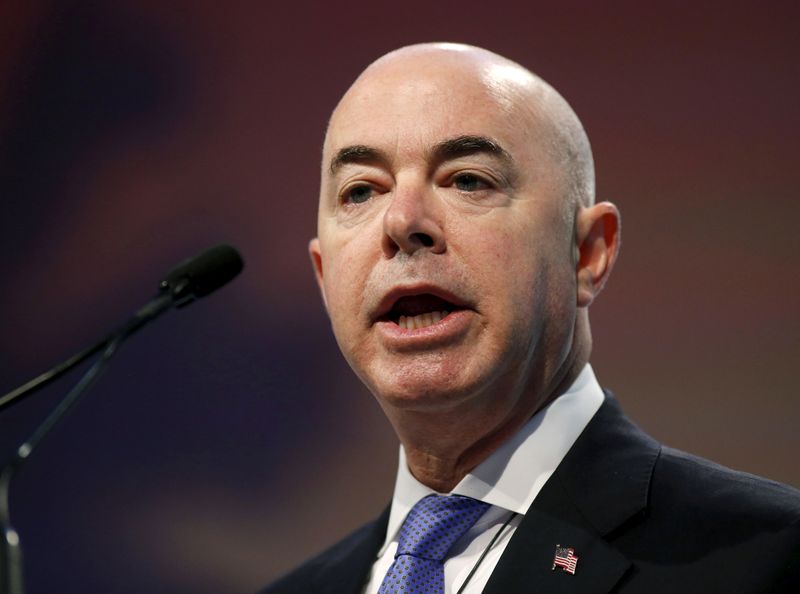By Ted Hesson
WASHINGTON (Reuters) - President-elect Joe Biden will nominate Alejandro Mayorkas to become U.S. secretary of homeland security, Biden's transition team said on Monday, entrusting the Cuban immigrant to help reverse outgoing President Donald Trump's hard-line immigration policies.
Mayorkas, a former federal prosecutor in California, served as deputy secretary at the Department of Homeland Security under President Barack Obama when Biden was vice president. Mayorkas became one of Biden's first Cabinet selections as the Democratic former vice president prepares to take office on Jan. 20.
If confirmed by the U.S. Senate, Mayorkas would become the first Latino and first foreign-born leader of the sprawling department created in the aftermath of the Sept. 11, 2001, attacks on the United States. DHS, with about 240,000 employees, is responsible for border security, immigration enforcement, cybersecurity, disaster readiness and relief, and encompasses the U.S. Coast Guard and Secret Service.
Mayorkas, who turns 61 on Tuesday, was born in Havana and came to the United States when he was roughly a year old with his family, fleeing the Communist-ruled island nation, moving first to Florida and then California. He is currently a partner at the law firm WilmerHale.
"When I was very young, the United States provided my family and me a place of refuge," Mayorkas wrote on Twitter following the announcement. "Now, I have been nominated to be the DHS Secretary and oversee the protection of all Americans and those who flee persecution in search of a better life for themselves and their loved ones."
Biden has pledged to undo many of Trump's restrictive immigration policies. The hundreds of planned changes could take months or years to implement. Some pro-immigrant activists favored Mayorkas for the DHS role.
On the first day of his presidency, Biden intends to rescind Trump's travel bans targeting people from 13 countries - most of them either majority-Muslim or African nations. He also plans to send immigration legislation to Congress that would include a pathway to citizenship for the estimated 11 million immigrants living in the United States illegally.
Biden also plans to revitalize the Deferred Action for Childhood Arrivals (DACA) program put in place in 2012 by Obama that offered protections to the so-called Dreamers - hundreds of thousands of immigrants living in the United States illegally after entering as children. Trump sought to rescind the program but was blocked by the U.S. Supreme Court in June.
'HUMANITARIAN CORE'
Former colleagues praised Mayorkas as a talented manager with knowledge of DHS and experience in both law enforcement and immigration.
"He is an enforcement guy, but has a very deep and rich humanitarian core," said Seth Stodder, a DHS official during the Obama administration who worked on border, immigration and trade policy.
Mayorkas joined the Obama administration in 2009 as the director of the U.S. Citizenship and Immigration Services (USCIS) agency.
In that role, he oversaw the implementation of DACA, which was up and running 60 days after being announced. The program protected eligible immigrants from deportation and provided them work permits. Mayorkas navigated logistical and legal obstacles to meet an ambitious implementation deadline, according to Stephen Legomsky, the USCIS chief counsel at the time.
"We were tied up in knots for 60 days and Ali somehow got it together," Legomsky said.
A 2015 DHS inspector general's report found Mayorkas had intervened in cases related to certain "politically powerful" people involved in an investor visa program, giving the perception he had provided preferential treatment to those people and related businesses.
The cases involved prominent Democrats including Anthony Rodham, the brother of 2016 Democratic presidential nominee Hillary Clinton, former Virginia Governor Terry McAuliffe and former Democratic Senate Majority Leader Harry Reid.

A Biden transition spokesman noted that the inspector general did not find any legal wrongdoing with Mayorkas' actions and determined the decisions were "legitimately within his purview."